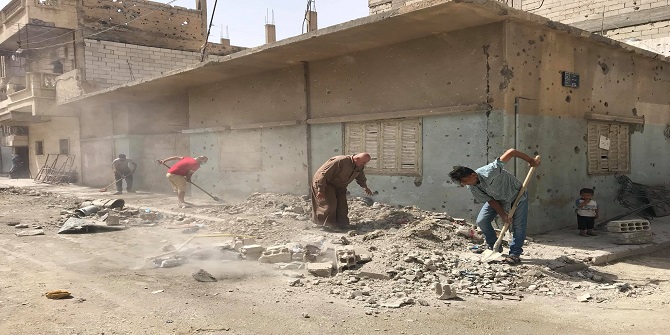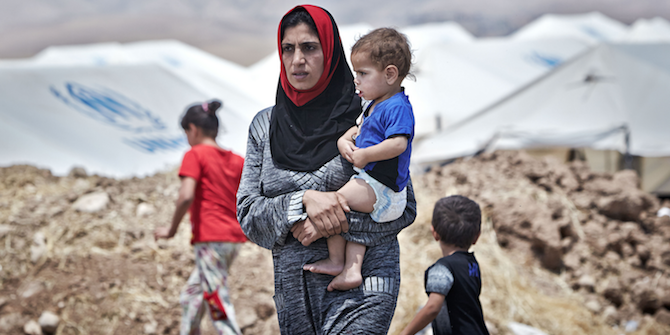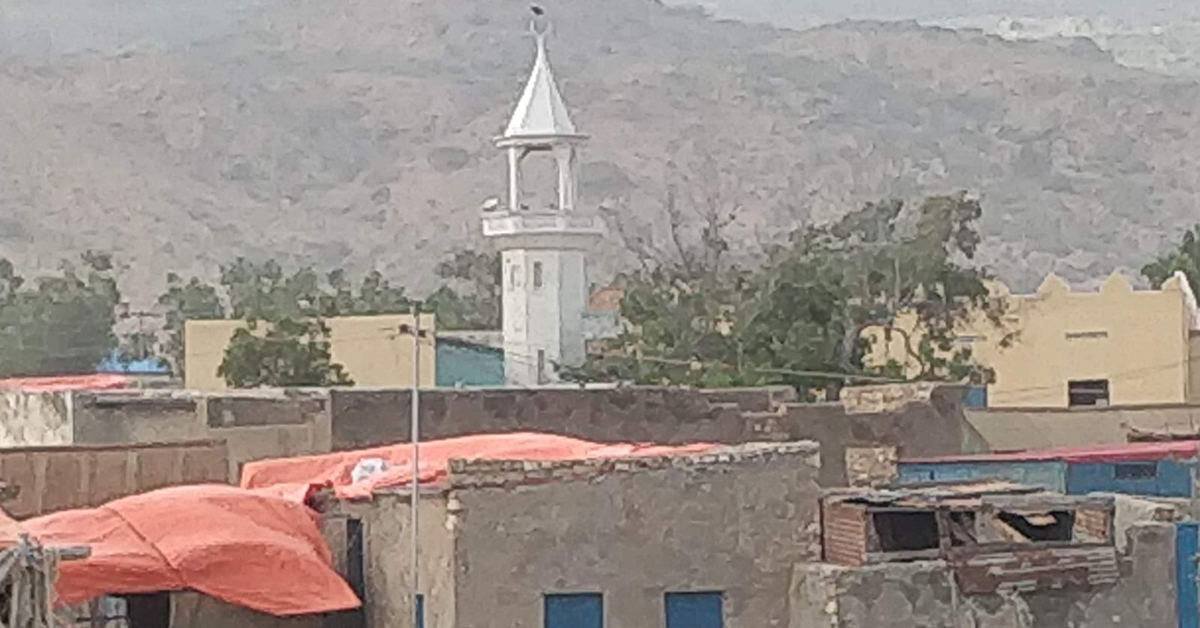On 8 November 2021, the well-known Somalia analyst, Matt Bryden, published a provocative piece on the political direction being taken under the country’s current leadership. While there is much that we agree with in Bryden’s polemic, we wish to challenge the underling argument concerning the ‘quiet jihadist takeover’ of his title and the ‘Talibanisation of Somalia’ suggested in the narrative. These are very strong tropes that feed into a Western-centric, securitised view of Somalia that, we argue, are both over-stated and dangerous. In Somalia, among other things, this has created perverse financial incentives for proliferating private security actors, provided greater rent-seeking opportunities, and fuelled resentment against external intervention, while resulting in little concrete progress in improving security for ordinary citizens.
To begin with, we concur with Bryden’s portrayal of the centralised and authoritarian direction that President Mohamed Abdullahi ‘Farmajo’ and Fahad Yasin, the Head of NISA (National Intelligence and Security Agency) – and previously with, ex-Prime Minister, Hassan Khaire – have taken in Somalia since 2017. The attempts by the ruling cabal to install compliant leaders in all of the regional elections since 2018 have been well documented, including by ourselves in a Synthesis Report on Somalia, under the LSE Conflict Research Programme. As Bryden rightly points out, the warning shots of this direction were fired in the first regional election, in Baidoa, in 2018, when, with Ethiopian support, the front runner in the election was forcibly removed. This followed the removal of another strong candidate, the incumbent regional President, who was paid off in order to refrain from contesting the election. The use of money and coercion have clearly characterised all of the regional elections and have been driven by the leadership in Mogadishu, although where each election has involved different mixtures of coercion and money depending on respective levels of autonomy from the centre.
The intimidation and attacks on opposition figures as well as journalists have indeed been taking place under Farmajo’s Presidency, and are to be deplored, as is the controversial killing of the NISA agent, Ikraan Tahlil, which NISA tried to blame on Al Shabaab. These have all been extremely worrying signals in Somalia. However, to focus on Farmajo presents a distorted picture, as similar criticisms can be raised of the Presidents of Puntland and Jubbaland.
The underlying argument that Bryden puts across however, is based on his focus on Fahad Yasin. Bryden portrays Yasin, not just as Farmajo’s key political operator, working on behalf of the President, but as representing a hidden Islamist agenda. The article refers to Yasin’s upbringing as well as the placement of ‘his’ people in positions in government, as justification for this argument.
There is indeed little doubt that Yasin is the key political orchestrator behind Farmajo’s Presidency. In this, he perfectly fits Alex de Waal’s description of the political entrepreneur: skilled at managing the political marketplace; knowing the price of loyalty, utilising his political budget and/or coercive means to pursue power. In this, Farmajo and Yasin have arguably contributed to the intensification of a monetised and transactional politics that was already well-established in Somalia. The engagement of the Gulf actors, with their suitcases of money has contributed to these dynamics and the political budgets of different Somali elites.
However, we remain unconvinced by the Islamist agenda – or hidden hand – that Bryden argues is central to Yasin’s motivations. Yasin’s personal background is not substantially different to many other Somali politicians active today or in the recent past, in terms of his Islamist credentials and connections. The previous President, Hassan Sheikh Mahamoud, as well as current regional Presidents, such as Ahmed Islan Mohamed ‘Madobe’ of Jubbaland and Said Abdullahi Mohamed ‘Deni’ of Puntland, amongst many others, have not dissimilar backgrounds. It is also the case that there has been a growing conservatism in Somali society over the last thirty years, reflecting global trends as well as Somali-specific developments in the economy and society; business and local populations have sought different means of protection and development in a context of violence and volatility. However, for us – and other commentators– Yasin’s motivations are unclear beyond extending his political power.
A related concern for us is the security sector lens that appears to inform this analysis, particularly vis-à-vis Al Shabaab. While it is true that the leadership in Mogadishu have not focused their attention on Al Shabaab, this raises the question about whether removing Al Shabaab really is a priority, and if so, for whom? And if it is not, is this a sign of something more sinister? It is perfectly plausible, indeed likely, that Farmajo’s government initially prioritised their centralisation agenda above attacking Al Shabaab, aiming to bring all of the regional states under their control. In this, they appear to have underestimated the scale of their task. Instead of consolidating power, they have been drawn into a deep quagmire with opposition to their methods increasing in Mogadishu as well as in the regional states, particularly amongst those that have the capacity and patrons to resist the money and coercive tactics deployed. Key regional opponents are Madobe (supported by Kenya), and Deni (sufficiently autonomous in financial and security terms), both of whom have allegedly received support from the UAE. The result has been a weakened elite bargain (which was fragile in any case) upon which the nascent federal system was built. This has also had the impact of limiting any potential advances against Al Shabaab. However, this is not necessarily by design as suggested.
Bryden also draws links between Al-Itisam (a small Salafist network) and Al-Shabaab and seems to imply connections between Yasin and AI-Itisam. Although Al Itihad is indeed the common ancestor of groups such as Al Itisam and Al Shabaab, as far as we know Yasin is not a member of the former and the close association suggested between the two in the article is over-stated in our opinion and in fact would put Yasin at odds with Al Shabaab, where the opposite is implied – that there is some degree of collusion. The instrumentalization of different relationships and networks between Somali elites is no doubt complex and opaque, however we see no clear or strategic connections.
In concluding, Bryden’s article clearly outlines many characteristics of the ruling leaders in Mogadishu since 2017, much of which we agree with. Yasin’s role in this is no doubt central, as the key ‘Political Entrepreneur’. However, the assertion that he represents a more sinister Islamist agenda that is protective of Al Shabaab is, we argue, pushing this characterisation one step too far. Furthermore, it ascribes more strategy and organisation than is possible in the Somalia political environment, where political dynamics are highly reactive and involve inter-connections between local, national, regional and global levels that are largely unpredictable. While much of the characterisation and criticism of the Mogadishu leadership is justified, it neglects similar characterisation and association that could be applied to others, including many within the political elite. Finally, this perspective risks feeding a Western-centric securitised view of Somalia. This in turn may contribute to the continuation and possible intensification of security-led approaches in the country and presumes that Al-Shabaab should only be viewed in security terms rather than as a political actor with political aspirations that requires engagement, regardless of how distasteful that is to some.
Note: The CRP blogs gives the views of the author, not the position of the Conflict Research Programme, The London School of Economics and Political Science, or the UK Government.





